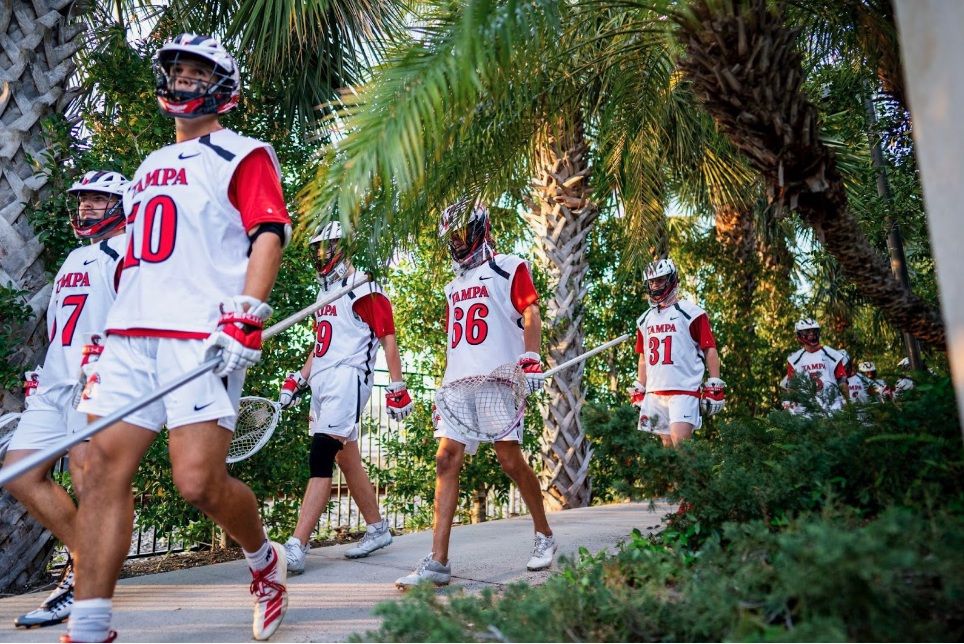By Jessie Tobin
The Sunshine State Conference (SSC) in Florida cancelled regularly scheduled competitions for all Fall and Winter sports this year due to the medical concerns surrounding the spread of COVID-19. But bigger name schools have decided to push forward with their season this year. On Thursday, Sept. 24, the Pacific Coast Conference (Pac-12) CEO group decided that they will resume their football, basketball, and winter sports season. Some of these schools include Stanford University, University of California Berkeley, and the University of Arizona.
Just over a month ago, the conference decided to postpone all scheduled competitions due to some major concerns brought up by the conference’s medical advisory committee. The biggest concerns for the department were consistent testing capabilities across each Pac-12 university, the prevalence of the virus in Pac-12 communities, and possible cardiac concerns potentially associated with COVID-19. But with new rules set in place by the Pac-12 medical committee, most universities in the conference will be conducting daily antigen testing as well as every student-athlete taking a weekly PCR test.
Pac-12 Commissioner Larry Scott spoke about the decision to proceed on the Pac-12 network. Scott was happy that student-athletes can have the opportunity to compete now with rigid medical protocols set in place. He mentioned that competing and training is a part of a student-athletes identity, and there is no question about that. Though I believe that most conference’s main priority is to have their athletes compete, I can’t help to think that there is an underlying motive.
On Friday, July 10, the Pac-12 announced that in the 2018 to 2019 season, they generated a $530 million dollar revenue, which was a 7% increase in revenue and a 9% increase in distribution, according to the Pac-12 website.
According to an article in the Portland Business Journal, in the 2018-19 academic year data from higher ed’s Equity in Athletics Data Analysis system in the U.S. Department of Education, the Pac-12 conference could have potentially lost $1.3 billion in annual revenue by canceling athletic activity.
The “Power 5 conferences” which are the Atlantic Coast Conference (ACC), Big Ten Conference, Big 12 Conference, Pac-12 Conference, and Southeastern Conference (SEC) had a combined financial revenue of $2.9 billion dollars in the 2019 season. The Big-10 conference, who will also be playing football this upcoming season, brought in $781.5 million. So without football, schools would be taking a huge hit financially since football drives most of the revenue for big schools.
The Southeastern Conference (SEC) will also be proceeding with their football season. According to a CBS Sports article, on Friday, Sept. 18, the league decided that schools must have a minimum of 53 active players and specific positional numbers in order to play and that teams will only be playing within their conference. Teams that make up this conference include the University of Florida, Alabama, Auburn, Mississippi State, and Georgia.
In the 2018-19 school year, SEC generated a revenue of approximately $651 million dollars. The SEC board and many other conferences mention that growth in revenue distribution is impactful on providing athletes with the best medical care, training, and academic guidance. This revenue increase is mainly coming from television partnerships big college football and basketball conferences have.
According to a Yahoo Sports article, back in May of this year Kirby Smart, head football coach for Georgia, told reporters that “the worst thing” coaches and administrators could do is feel like the 2020 season has to be played because of finances and make one decision that is costly to even one student-athlete.
From a student-athlete perspective, I understand both sides of this situation. Athletes want to compete because they train hard all year round hoping to show off their hard work. Conferences want their athletes to be able to compete not only because they know how hard they work but also because the revenue does help to support the school and athletes academically.
It is easy to agree with Smart, that schools should not push to play this season based purely off of financial reasons. But you cannot ignore how important the football season will be this year because of how many schools did not receive as much money this year from the National Collegiate Athletic Association (NCAA) because of the cancellation of NCAA tournaments.
As long as athletes are seen as people and not a way to drive revenue, I think that conferences will be able to have a successful football and winter sport season with the right medical protocols set in place and heavily enforced. Athletes miss competing at all levels of collegiate divisions and sports. The day that all college athletes get to play or compete again like old times will be a special day for many young athletes.




